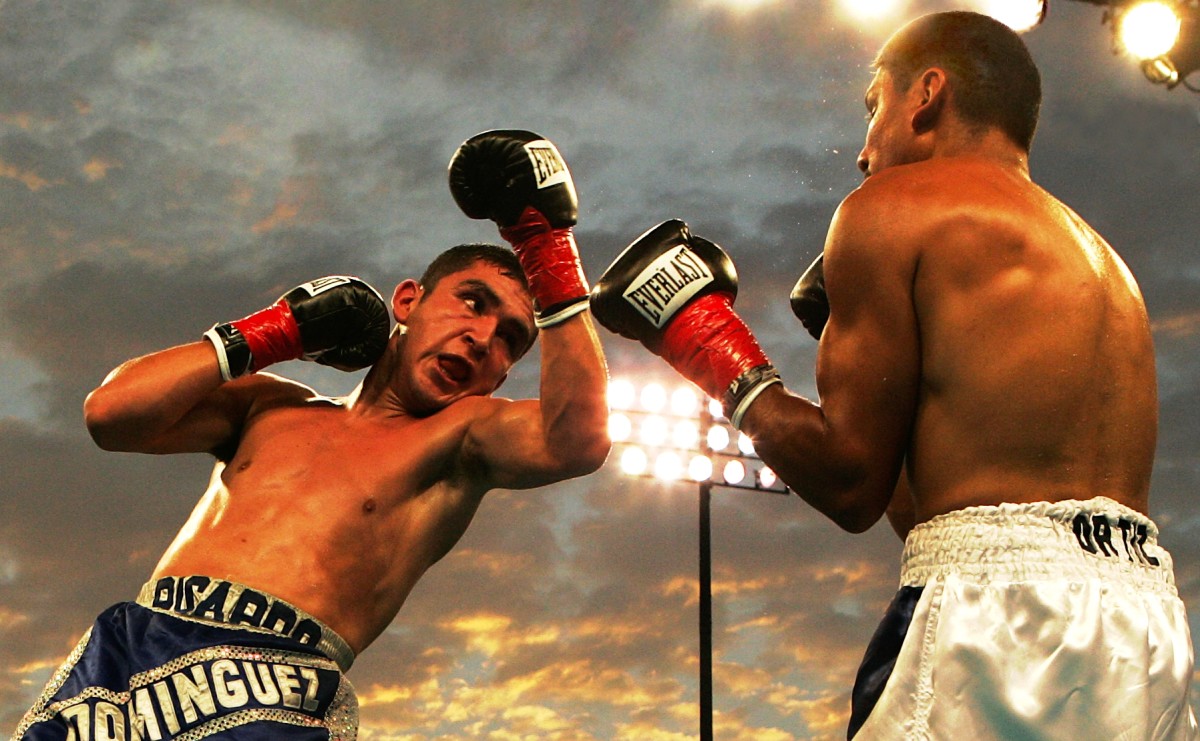How Can I Win on the TV Show Survivor?
Survivor: Greatest Reality Show Ever
Although I am not a fanatic, I have watched a lot of Survivor.
The show hooked me during the Survivor: All-Stars show. It was the 8th season. After that, I watched Survivor: Australia on DVD. That was the second season.
Following Survivor: All-Stars, I've watched almost every season. I've skipped a few here and there. Sure, I would like to be on the show. Thus, I've formed some theories about how to win. No doubt, winning Survivor involves no small amount of luck. And no amount of skill or plotting will guarantee victory. However, players can certainly increase their odds of winning the game.
Having said all this, I do have one caveat to my list of winning strategies. It's this: I have not been on the show.
Anyone who develops a theory about winning Survivor without having actually been on the show is missing a key ingredient. We simply don't know what happens when the cameras are off. A lot of what makes Survivor great is editing.
Much like a war movie, the producers leave most of the boring parts out. Thus, non-participants don't have sufficient context to make all the conclusions necessary about how to excel at the game. With that understanding though, I'll make my best attempt anyway.
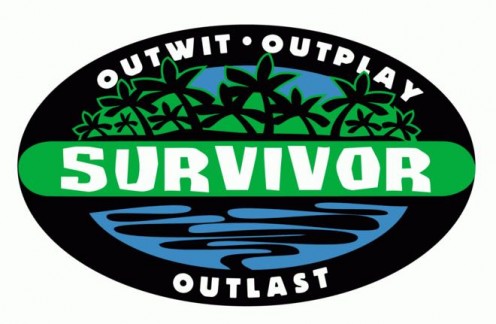
Would you want to be on Survivor?
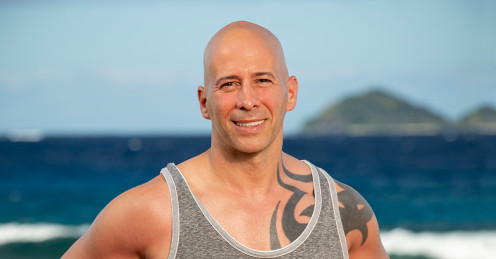
Self-Awareness
If you are not self-aware in Survivor, you might as well quit.
It's nothing short of stunning how many players lack this quality. The ones that are annoying don't seem to realize it. The bossy ones don't understand being bossy is a losing strategy. Religious zealots don't get why they rub others the wrong way. The lazy ones don't get it. If you don't help out, people vote you out.
Basically, those with huge flaws seem oblivious. In order to win Survivor, it's critical to understand your flaws. You need to quiet your own shortcomings and highlight those of other players. If you don't have that self-awareness, you can't win.
The poster boy for this trait is Russell Hantz. He appeared in three seasons of Survivor. He's been on Survivor: Samoa, Survivor: Heroes vs. Villains, and Survivor: Redemption Island.
He has been simultaneously one of the show's most successful players and one of its most miserable failures. He's amazing at certain aspects of the game. However, his lack of self-awareness has been the main culprit in his failure.
Ultimately, Russell understood the strategy of Survivor insofar as Survivor is a game that requires strategic planning. However, the social component of Survivor - the importance of being liked and respected as a decent human being - is also critical to winning. Russell never seemed to understand that having everyone hate you at the end resulted in nobody voting for you as the winner.
It's critical that anybody who plays Survivor understand what type of player they are and doesn't allow their weaknesses to be their undoing.
Type A vs. Type B
There are leaders and there are followers in Survivor. Which one your are going to be is a large part of what should determine your strategy from the outset. In Survivor parlance, some people seek out alliances and some people are sought for alliances.
If you are a Type A personality, then you automatically have to be aware that you are going to be more likely to annoy other people. If you seek out the role of leader, you automatically put a target on your back and allow your fate to rest on your leadership skills, which can be an extremely risky strategy. It's risky for two reasons. There are many decisions that get made in Survivor and if you're the one making them, you're likely to get blamed when things go wrong. However, the best reason to avoid being the leader is that you are almost always involved in voting people out of the game and they end up holding you responsible for it. This makes it very hard to get them to vote for you at the end of the game.
Since Type A personalities tend to clash and vote each other out, it opens the door for assertive Type B personalities. Generally, the Type B personality is more likely to be asked to be in an alliance or sit back and let the game develop and react to it rather than trying to manipulate the game from the outset. Depending on a player's other qualities, this tends to be the safer approach to advancing further in the game.
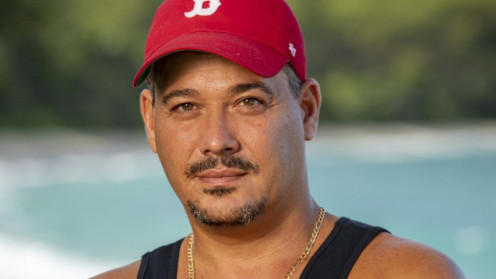
Good at Challenges vs. Bad at Challenges
A critical component to early success in Survivor is doing well at challenges. Although strong players are occasionally voted out early, it's just common sense that when there are two tribes competing against one another that it's better to keep the players who are good at challenges and get rid of the ones that are weak. That being said, it's a good thing to be physically adept, but not so threatening that other tribe members become concerned that you could win every challenge there is. This occasionally happens, but not often. A player who is good at challenges and eschews every other component of the game will usually go reasonably far just because he or she if valuable to the tribe. When the game shifts to a single tribe situation, which it usually does, this player is then at a disadvantage.
Useful vs. Useless
Somebody who is useful around camp generally has an early advantage over those who do nothing around camp. Though this is not as important a component as being good at challenges, it is certainly an advantage. A tribe that is comfortable and strong is happier and generally performs better, so those that contribute to that characteristic are kept around most of the time.
A Brief Overview of Who Does Poorly
Some of these types of people are described above, some are not. I thought it would be useful to cover the types of people that tend to be kicked off early.
Annoying
If you're really annoying, you tend not to last long and become an immediate target.
Weak - If you're exposed at challenges as being a liability, you become a target.
Lazy
If you do nothing around camp, people tend to complain about you and you become a target.
Old
Old people, meaning anyone over about 50, tend to be identified as targets because they usually don't do as well at challenges, are perceived as weak, and because most of the cast tends to be young. Old people just aren't as interesting to the larger group.
What To Do If You Fall Into One of These 4 Categories
It is extremely hard if you fall into one of these four categories to advance in the game. However, an annoying person can advance if they aren't weak and lazy. A lazy person can advance by not being weak or annoying. An old person can advance by not being any of the other three. For obvious reasons, the weak person has the hardest time, particularly if the tribe is doing poorly at the challenges.
The main strategic play for any of these types of people is to develop an alliance very early in the game that's large enough to redirect votes to somebody else. The most logical alliance is a five person alliance. A five person alliance can go far in the game provided that the tribe remains intact and the alliance makes it to a merge, if it happens.
By necessity, a player who falls into one of these categories must form an alliance with players who do not, otherwise their alliance won't last. It's vitally important, in fact, for the player who falls into one of these categories to form his or her alliance with four players who do not fall into any of these categories. If such an alliance is formed, the end-game strategy becomes very straight-forward for the annoying, weak, lazy, or old player: take me to the final two or three since I am no threat.
Occasionally, weaker players can align and target the stronger players. Sometimes one or two strong players get kicked off, but ultimately it's not a good strategy as it weakens the tribe at challenges. As long as Survivor continues to divide participants into two tribes, weaker players will have a very difficult time forming any sort of all-weak, all-annoying alliance against stronger players.
An Overview of Who Does Well on Survivor
Although some of these categories do not always do well, they most often advance further in the game than the people who have the type of characteristics that don't do well.
A Brief Overview of Who Does Well
Physically gifted
This sort of covers anyone who does well in challenges, be they a man or a woman. If you do well in challenges and demonstrate that you can help a tribe win, your value as a tribe member instantly increases. While it's occasionally true that stronger members are targeted for early departure, it rarely happens and is generally a poor strategic move early in the game.
Natural leaders
These sorts of people have the ability to convince others that they're right and they do so through a combination of charm and persuasion (be that through arm-twisting or outright lying). Both Russell Hantz and Rob Mariano had this quality, though they had different personalities.
Likable
People who are just generally likable, provided they aren't weak or lazy, often advance far in the game. Who wouldn't want to have a likable person around as opposed to an annoying one, even though strategically, you want to take annoying people to the end because they're easier to beat.
Camp contributors
Contributions in and around camp, like cooking, shelter-building, and other things, often helps keep people around. It's not the most important characteristic to have, but it certainly doesn't help and is preferable to a lazy person.
What To Do If You Fall Into One of These 4 Categories
If you fall into one of these four categories, it's beneficial to your long-term success to form an alliance with other players who fall into one of these categories also because the strength of the alliance is better if all the members are players unlikely to be targeted or whose targeting doesn't make that much sense. However, the downside to such an alliance is that beating these other players at the end can be challenging. The ideal situation for a player in one of these four categories is to go to the final three with two other players who are not in one of these four categories. In other words, taking players to the final three who would otherwise not have gotten there without a strong player's help is an advantage to the strong player.
What Kind of Alliance Should You Form?
A five person alliance is ideal. If tribes are divided into two groups of ten, then a strong five person alliance can dominate a tribe after the first person is voted off. Within the five person alliance, it is helpful to have a sub-alliance of three people, though this sub-alliance doesn't necessarily have to be decided early on. If the five person alliance is fortunate enough to make it to the final five though, the savvy player will have an exit strategy and that involves securing two other votes.
How Do You Lose Survivor If You Fall Into One of These 4 Categories?
The most common reason a good player loses in Survivor is that he or she gets on a tribe that can't win a challenge. If that tribe then goes to a merge outnumbered by the other tribe, that disadvantage is tough to overcome. If the other tribe is unified, then it is all but impossible to win barring an immunity challenge winning streak or an immunity idol discovery. The outnumbered tribe will be picked off one by one. This makes it imperative for a player in one of these four categories to make sure he or she is aware of the hierarchy of the opposing tribe.
How to Win on a Losing Tribe
Winning Survivor when you are on a losing tribe and you go to a merge at a player disadvantage is very, very difficult. If the stronger tribe has a five-person alliance then their goal is to vote off the weaker tribe one-by-one so that none of those players becomes a potential swing vote in a new alliance that could pick off one of their members.
Consequently, if you are on a weakened tribe, your goal after the merge has to be to form a new alliance with the players from the stronger tribe who are #4 and #5 in the five-person alliance or who are outside of that alliance. This is no easy task, but many people just take the approach that they'll try to win the challenges or find an immunity idol and stop playing the strategic part of the game. However, if you can figure out who is on the outs in the five-person alliance, it makes strategic sense for them to flip because they will advance further in the game that way. If you, as a player with no alliance, can form a new alliance, you will obviously go further in the game.
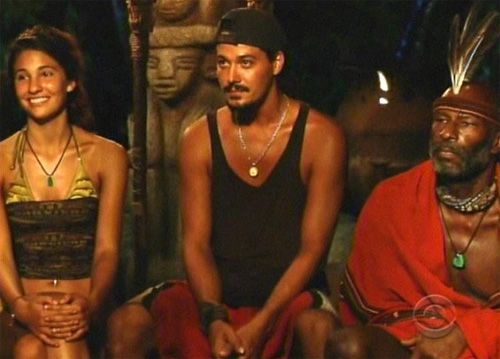
How to Win at the Final Tribal Council
Well, you did it! You've made it to the final tribal council. What now? It's amazing how many players seemingly blow it at the final tribal council. Admittedly, there's a lot of weird stuff that goes on at the final tribal council. Some juries seem to want apologies. Other juries seem to be full of people who want to vent and call people liars and have no clue that they just participated in a game that requires lying and back-stabbing.
In my opinion, the best way to get jury votes at final tribal council is to make the jury feel good about themselves while also pointing out what makes you the best player left. However, you don't necessarily have to be the best player left if the other survivors make all the jury members mad. In many cases the jury votes against certain players as much as they vote for others.
Too many players apologize for how they played the game. If they controlled the game and voted most of the players out of the game, they apologize without explaining. There is really a simple way to curry favor with the jury while touting one's strength as a strategic thinker and that's by claiming that any person who was voted out was voted out because you considered them a threat to win. Few players have used this argument strategy at final council, yet it's relatively flawless. "Every move I made to vote one of you out was made because I considered you a player who could defeat me if I was sitting here. I'm sorry if that was hurtful, but I don't see how you can argue with what I did to further my position in the game. I voted all of you out because I respected you as players and knew it would be very hard to beat you in the end."
Boy, if somebody said that to me and I was in the jury, they'd get my vote, especially if they explained what made others threatening. Of course, you have to understand what each person needs at final tribal, but I'm often stunned that so few players have come to final tribal with an obvious strategy
Who Is The Greatest Player Ever?
With the airing of the 40th Season "Winners at War", Tony Vlachos certainly cemented his place as one of the greatest players of all-time. He's also one of the most fun to watch, which is a bonus.
Another thing that's great about Tony is that the other players seem to genuinely like him. This was a difference between his first winning season and his second. During his first season, he just seemed a little crazy.
I don't actually think there's a single, greatest player. Tony, Boston Rob, Sandra, and a number of others, all have a claim to that title. Survivor has changed quite a bit. So, a great player 10 years ago isn't as good a player now. That's the mark of a great TV show.
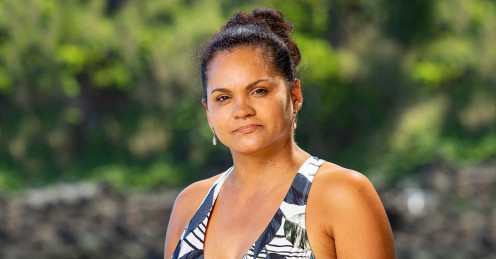
Survivor Has Changed and Is Changing
There was a clear delineation between "old school" and "new school" players during "Winners at War". Many of the "old school" players did not adapt to the new style of play.
The main difference between "old school" and "new school" is player recognition of identifying threats and removing them quickly. It's also recognizing the risk of making oneself a target by playing aggressively. In the new style of play, players punish aggression, particularly when it's successful.
The ideal style of play now is to try to play second fiddle. It's manipulating conditions from the back seat. It's pushing the threat of somebody else forward at all times. In recent seasons, threats end up going home. Good players end up going home. If the quality of your game is too obvious, you go home.
Force of will no longer works. Players must be extremely adaptable. It's become a lot more tricky to win. Recent winners haven't necessarily been the best players. They've been the ones who have good timing and recognize opportunity.
Greatest Player Ever?
Who Is The Greatest Survivor Player Ever?
This content is accurate and true to the best of the author’s knowledge and is not meant to substitute for formal and individualized advice from a qualified professional.
© 2012 Allen Donald



